
By Wade Sheldon, Tulalip News
The shores of Tulalip Bay were alive with action May 17–18 as families, clubs, and communities from across Washington and Canada gathered for the 2025 Tulalip canoe races—part of the seasonal War Canoe Series. This year’s event marked the third race in the circuit, which continues every weekend through the end of August at various Indigenous reservations. From single and double paddler events to the 6- and 11-man races, the competition was as diverse as it was spirited. A special biathlon-style race even had participants sprint around the ball field before paddling a solo canoe through the course.
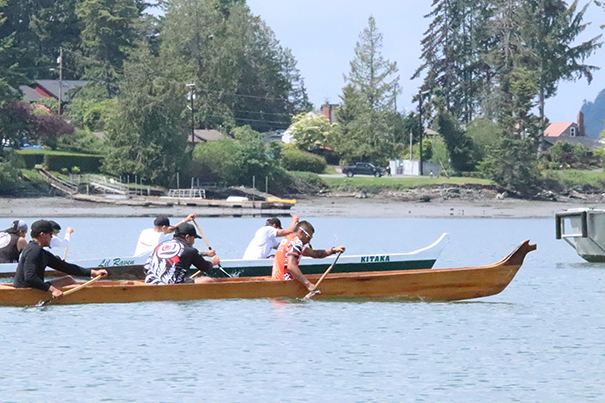
Saturday opened with wet and blustery conditions that challenged paddlers physically and mentally. By Sunday, however, the skies cleared, offering sunshine and calmer waters that made for smoother racing and a more festive shoreline.
Among those competing was Makaio Mamac from Lummi, who participated in the men’s 6- and 11-man events. “Just getting out,” he said with a laugh when asked about the most challenging part of racing. For Mamac, the sport is less about medals and more about community: “I mostly just do it to be with my people.” He credited running as his main form of training and admitted Saturday’s rainy weather made it tough to get motivated, but still, he went out and raced. “You get to meet many people and go places,” he said. “It’s a lot of fun.”
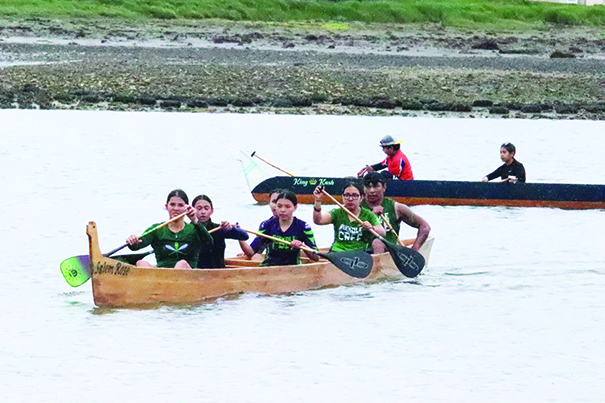
Another pair of competitors, brothers Remus Wyse-Morris and Jacob Seward from Vancouver Island, have been paddling since childhood. “Like generations,” they answered together when asked how long their family has been involved. For 17-year-old Seward, racing is more than a sport: “To me, it means life. It’s about training, learning, and getting better while absorbing teachings from the water.” He described his pre-race routine as one of quiet focus and strategy, gauging wind and currents, and thinking through the course. While Saturday’s waves were rough, the brothers especially enjoyed the unique biathlon-style race. “It was pretty fun!” said Seward, who described riding the waves as a highlight.
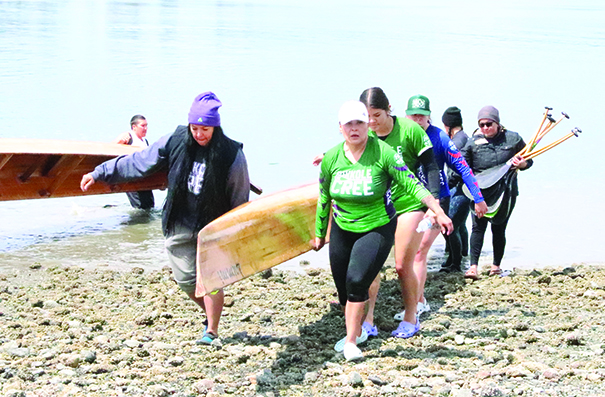
Wyse-Morris echoed that sentiment, saying his favorite part was “probably just the biathlon.” When asked what advice he’d give a young person just starting, he responded, “It’s not all about winning; it’s about having a good time with the people you love.”
For teen paddler Kiarra Williams from Swinomish, staying upright in the stormy weather was a memorable experience. “OMG, I got drenched in water on Saturday!” she exclaimed. Despite the splashy start, Williams has been racing for over two years and takes pride in her focus while on the water, especially during tricky turns, which she says are the most challenging part.
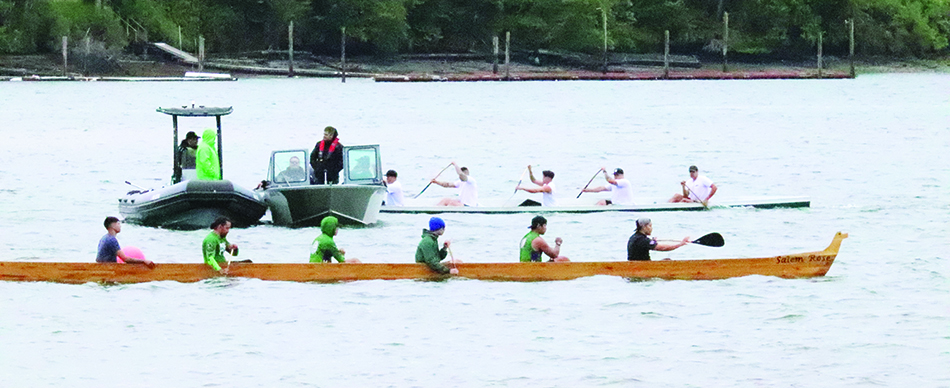
Lummi paddler Kylie Bob shared similar feelings about the weekend. “Canoe racing means hanging out with friends and family, meeting new people, and enjoying everyone’s company,” she said. For her, the highlight was making new connections along the beach and between races.
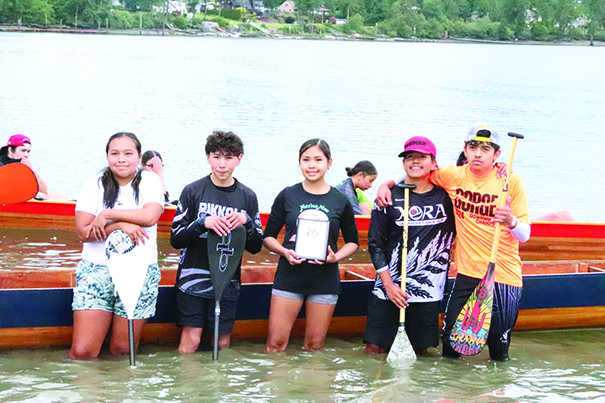
Veteran racer Dr. Lexi Tom, also from Lummi, brought over 30 years of paddling experience to the event. Originally from Miami, Tom said starting the race season at Tulalip was special. “When I arrived Saturday, it was stormy,” she recalled, “but the weather improved significantly by the afternoon.” Her crew came prepared with extra bailers and were relieved the course hadn’t been extended—rough waters can add a layer of difficulty, especially at the season’s start.
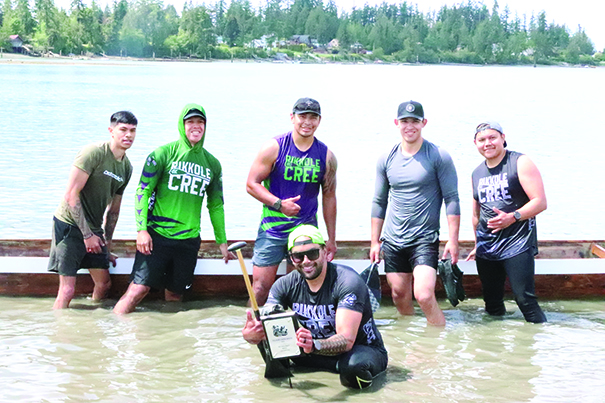
Tom co-founded the Marisa Mae Canoe Club with her sisters, repairing an 11-person canoe and welcoming younger paddlers into their group. For her, these races are about more than sport—connection, continuity, and culture. “It keeps the kids engaged with the water,” she emphasized. “It keeps our traditions alive.”

She also noted how meaningful it was to see people from many different nations and families reconnecting on the shoreline after a long winter apart. Many spent the weekend laughing, catching up, and sharing meals, whether racing or watching.